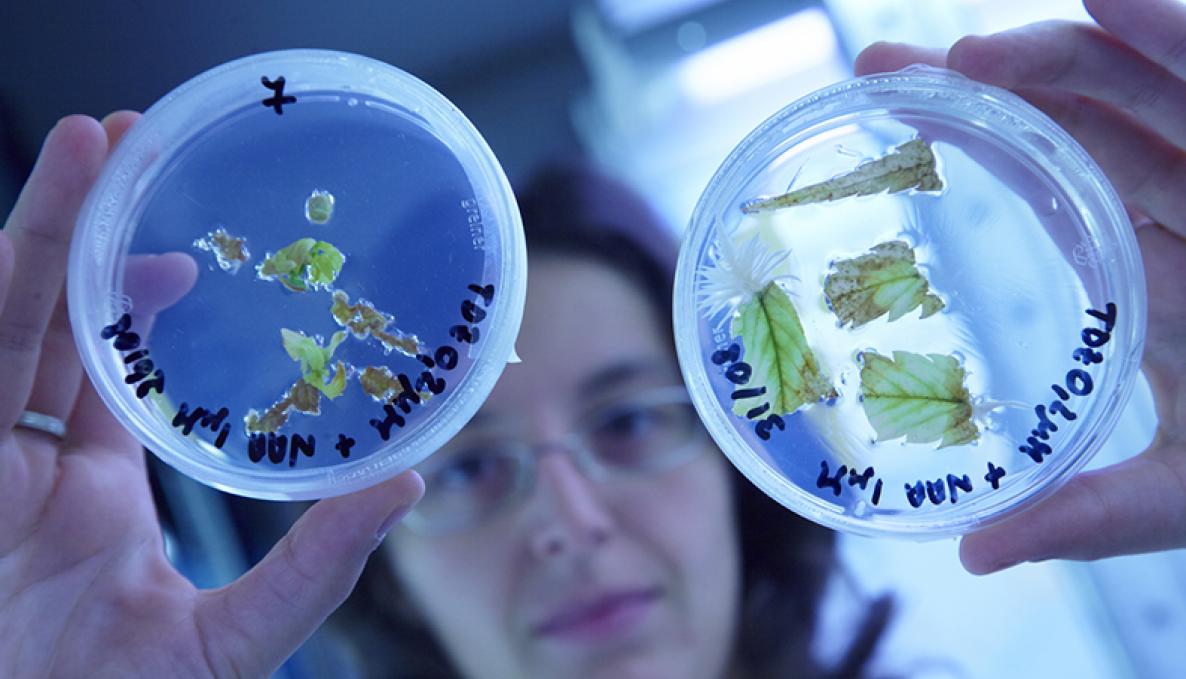Plant Molecular Physiology

The Plant Molecular Physiology laboratory at CPS carries out research on physiological and molecular mechanisms of higher plants, from the responses to endogenous stimuli, such as hormones and sugars to adaptation to stress. A molecular and post-genomic approach is the common denominator of all the research activities that include:
(i) Physiological and molecular basis of plant’s adaptation to flooding. We study physiological and molecular mechanisms that enable plants to signal and cope with environmental low oxygen conditions. The understanding of these processes is crucial to improve the survival of crops to unexpected and extreme flooding events, which are predicted to dramatically increase with global climate change. Our activities focus on Arabidopsis and cereals, with the interest on the characterization of molecular traits that may represent a major step towards the successful selection of tolerant varieties for breeding. Part of the research is also devoted to the study the plant’s microbiome role in the response.
(ii) Biostimulants impact on plant physiology. We focus on the study of plant physiological and molecular response mechanisms induced by biostimulants, natural products commonly used in agriculture to increase abiotic stress tolerance in plants.
(iii) Sugars, hormones, plant growth and development. We study the plant ability to sense sugars, which is crucial for the modulation of gene expression during development. Additionally, we are interested in the cross-talk between the sugar-sensing pathways and the physiology of plant hormones, which contributes to plants acclimation mechanisms.
(iv) Iodine physiology in plants. We provide new technologies to increase the iodine content in plants. To reach this goal we use an integrated approach that includes the study of iodine uptake in plants and the development of protocols for plant iodine applications.
(v) Anthocyanin synthesis regulation in tomato. We study the nutraceutical properties of tomato, which are mainly related to the antioxidant potential of the fruit. The aim of our research is the production of high-anthocyanin containing tomatoes through joint efforts in horticulture, crop physiology, genetics and breeding.
(vi) Plant synthetic biology. Our activities in this area of research are dedicated to the engineering of signaling module derived from different kingdoms of life to produce orthogonal reporters of endogenous and exogenous molecules such as hormones or metabolites, or physical stimuli. These newly derived signaling components can be exploited to improve plant performances and resilience to biotic and abiotic stresses.
(vii) The role of microRNAs in plant signaling. The purpose of this area of research is to study microRNAs function in plant-to-plant signaling. Additionally, we are interested on the role of microRNAs during a stress such as low oxygen conditions.
Additional information on the activities and the projects of the Plant Molecular Physiology laboratory of the CPS is reported at the PlantLab website.
